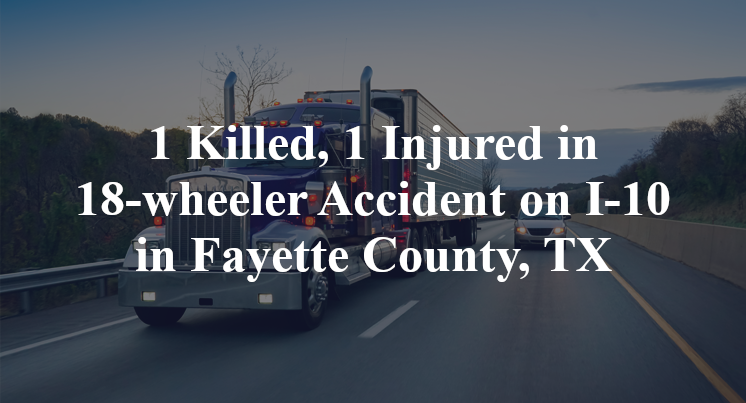1 Killed, 1 Injured in 18-wheeler Accident on I-10 in Fayette County, TX
Fayette County, TX — October 5, 2025, one person was killed and one was injured following an 18-wheeler accident at 8:04 p.m. along I-10.
According to initial details about the accident, it happened near Bryant Road, just west of Schulenburg.

Investigators said that a 75-year-old woman and a 77-year-old man were in a Jeep Grand Cherokee going eastbound along the interstate. A Freightliner tractor-trailer going the same direction allegedly failed to control speed. This resulted in a collision with the Jeep and a Hyundai Elantra.
Due to the accident, the Jeep driver was killed. The passenger had reported injuries. No other injuries were confirmed. Authorities have not said if they plan to file charges or citations.
Commentary by Attorney Michael Grossman
When a truck crashes into other vehicles due to not slowing down in time, it’s natural to question what the driver was doing in that moment. However, the deeper issue isn’t just what the driver did but rather what put them in that position in the first place. A lot of the time, the answer is the truck driver's employer. Let me explain.
I've handled hundreds of commercial vehicle accident cases over the years. In that time, I’ve seen that the root cause of mistakes behind the wheel often lead back to decisions made by the driver’s employer. Companies sometimes force drivers to operate on tight deadlines that leave no room for delays. Others push drivers to log excessive hours or skip legally required breaks. Some cut corners on driver training or fail to monitor how safely their employees are actually operating these enormous vehicles. And in plenty of cases, trucks are sent out with worn tires, faulty brakes, or other mechanical issues that make it harder to slow down regardless of how attentive and careful the truck driver is.
Any of those problems could result in a deadly failure to control speed. That’s why citing the driver would likely only be the first step. Investigators need to take a hard look at company policies, dispatch records, logbooks, and maintenance history to get the full picture of what went wrong. Otherwise, serious problems could continue to put others at risk.
Key Takeaways
- Failures to control speed often reflect more than a momentary mistake—they can stem from employer-driven issues.
- Common company-level causes include excessive driving hours, unrealistic delivery schedules, and lack of training.
- Vehicle condition also plays a role; poor maintenance can make slowing down more difficult or impossible.
- Investigating beyond the driver’s actions is essential to identify the root cause and hold the right parties accountable.

“These are essential reads for anyone dealing with the aftermath of a truck wreck”– Attorney Cory Carlson